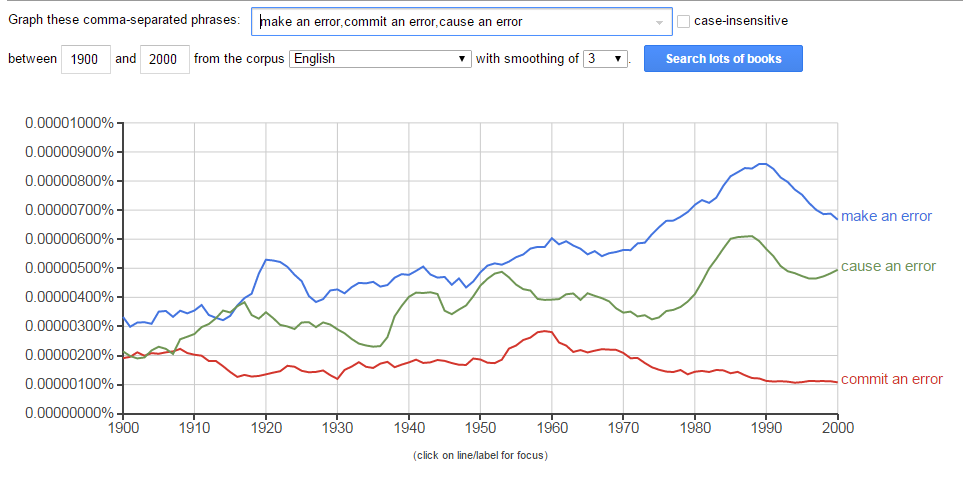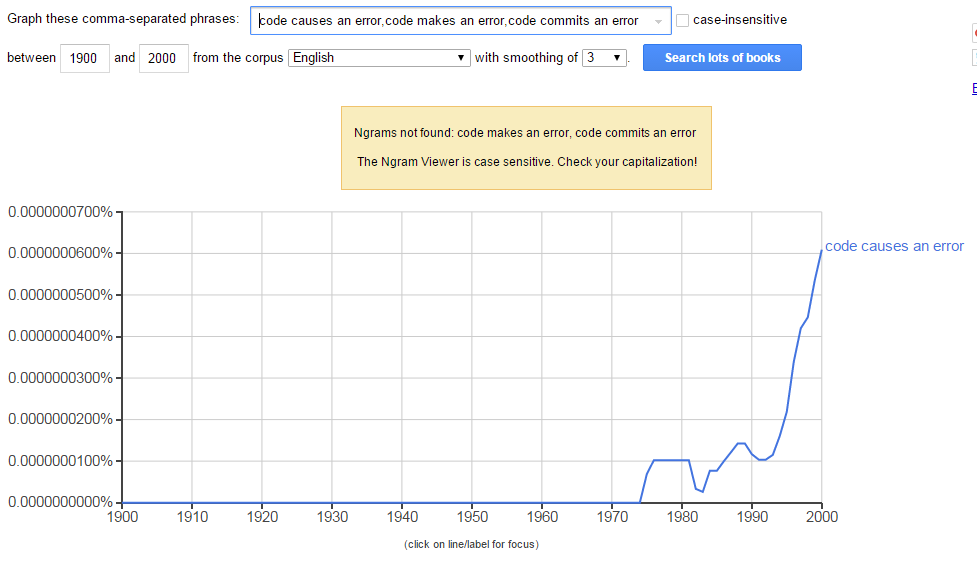I'm writing a technical document that uses checked run-time error and unchecked run-time error as terms of art. I need to talk about what happens when a computer program does something bad and causes one of these errors, but I'm not sure what verb to use.
In English, we make a "mistake," but I'm pretty sure we don't "make" an error.
Do we commit an error?
Do we cause an error?
Ideas appreciated. Sources, example usage, and authorities even more appreciated.
Sample phrase:
If client code verbs an unchecked run-time error, the implementation provides no guarantees; anything can happen.


